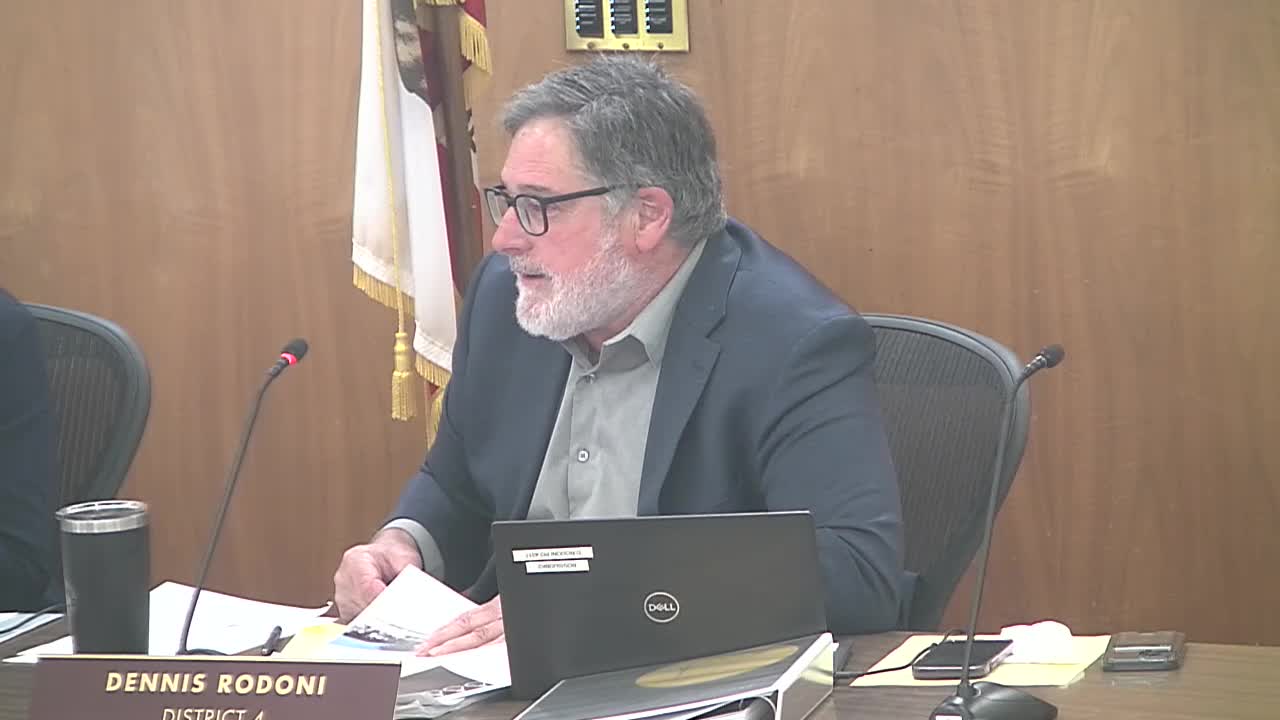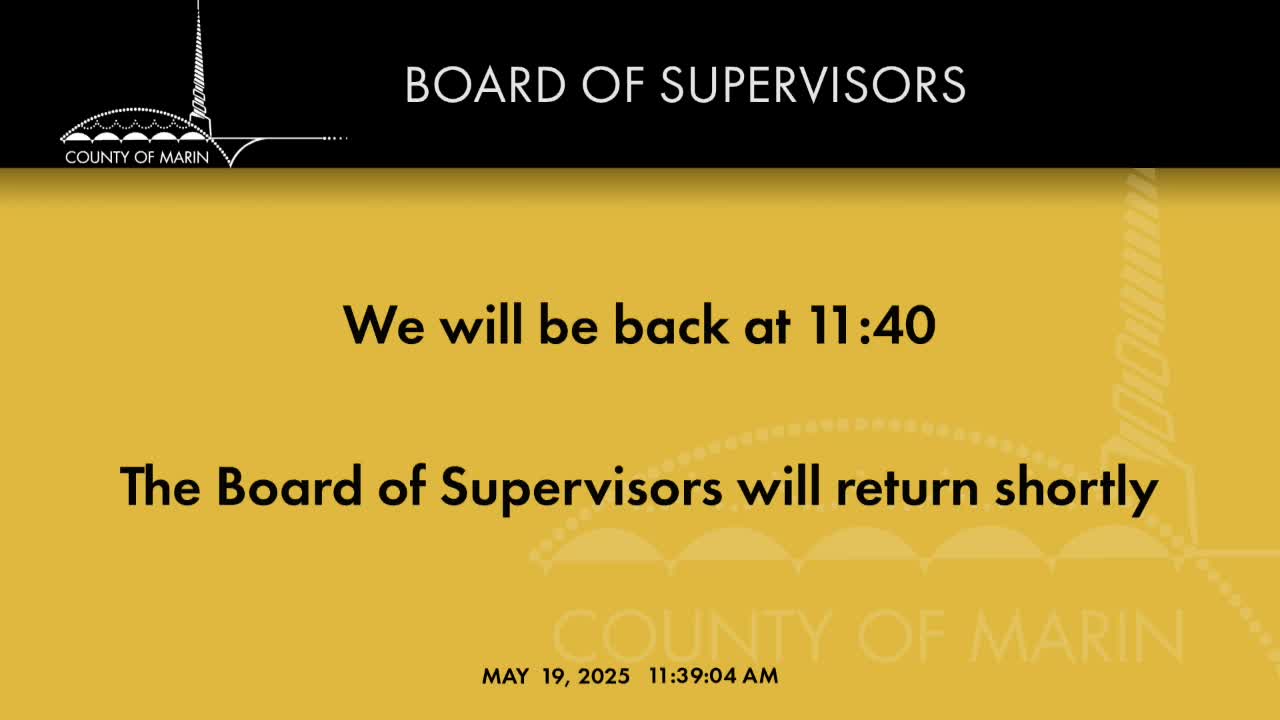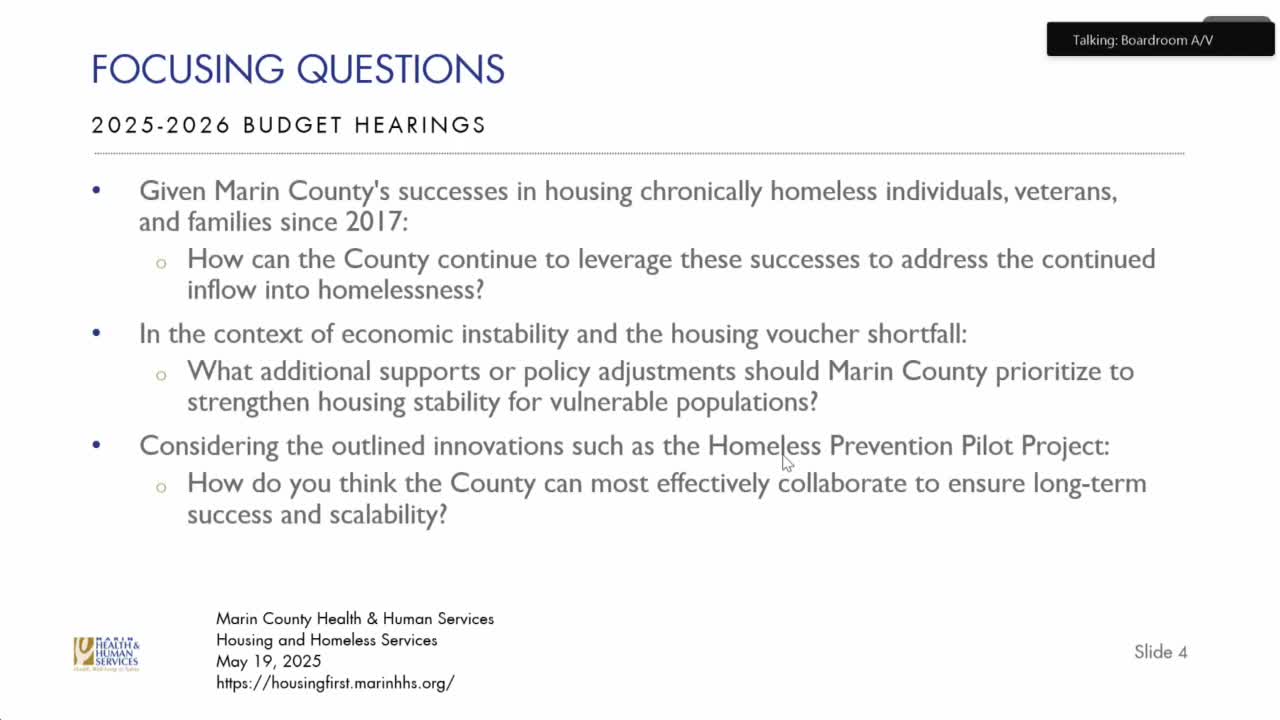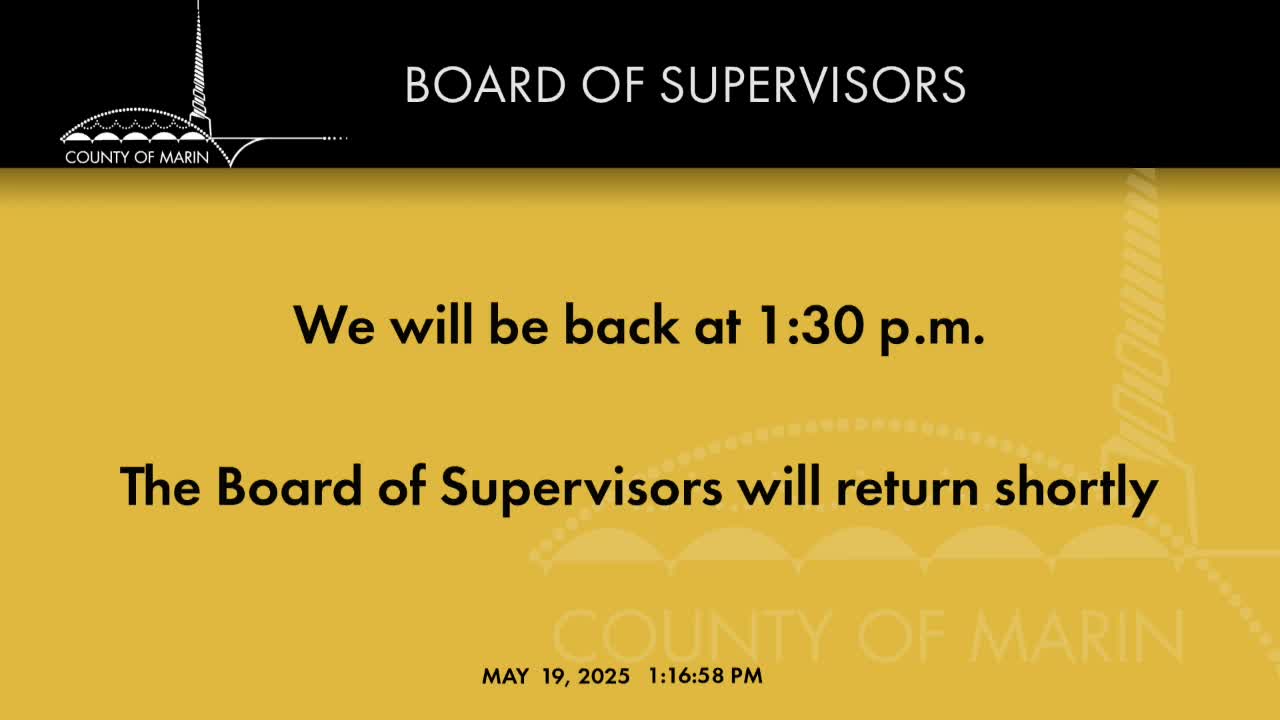Article not found
This article is no longer available. But don't worry—we've gathered other articles that discuss the same topic.

Community Development Agency work program approved; staff to pursue septic, housing, code and communications initiatives

Marin supervisors approve reorganization of county executive office, add senior deputies

HHS proposes homelessness prevention pilot with All Home and Marin Community Foundation; seeks county match

